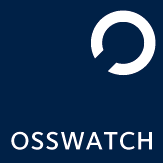
Licence differentiator
This tool attempts to help its users understand their own preferences in relation to free and open source software licences. It is no substitute for reading the licences themselves, and before placing any of your property under one of these licences, it is essential that you fully read and understand your chosen licence. The classifications of licence type that enable this tool to work are by necessity somewhat reductive, and therefore output of this tool cannot and must not be thought of as legal advice.
REMEMBER: ALWAYS READ AND UNDERSTAND YOUR CHOSEN LICENCE.